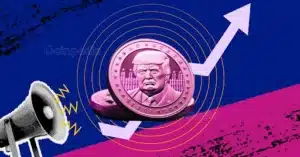FDIC asks banks to freeze crypto-asset-related activity, court documents reveal
In a recent X post, FOX Business reporter, Eleanor Terrett shared that Coinbase released 23 so-called “pause letters” received from the FDICgov, accusing the agency of releasing documents related to the crypto industry. It was dubbed “Operation Chokepoint 2.0”.
Specifically, the name refers to the efforts of many players in the crypto industry to cut off access to the banking system, which regulators have deliberately tried to stifle their trusted industries. These communications, brought to light by Coinbase, explain how regulatory ambiguity has exacerbated tensions between crypto companies and federal banking authorities.
In the year According to the letters sent in 2022, the FDIC asked institutions to “pause all crypto-asset-related activities” in response to uncertain regulations surrounding digital assets.
A conspiracy theory?
Some of the letters read, “The FDIC will notify all FDIC-supervised banks when a decision is made regarding supervisory expectations to engage in activities related to crypto assets.”
Coinbase CLO Paul Grewal's letters revealing Operation Chokepoint 2.0 weren't just some crypto conspiracy theory. FDICgov is still hiding more reforms down the road. And they still haven't made more than a fraction,” he said.
Grewal said the group is proud of its efforts to pursue FOIA requests despite FDIC denials, appeals and federal lawsuits. He also explained that they will continue to strive for transparency and openness from the government, including unredacted copies of the letter.
“Law-abiding American businesses should be able to access banking services without government interference. The incoming administration has the potential to reverse many poor crypto policy decisions, including major politically motivated regulatory decisions like Operation Chokepoint 2.0,” he emphasized.
Problems faced by Crypto companies
Operation Chokepoint 2.0, a term used by the crypto industry, suggests that the US government is pressuring banks to cut ties with crypto companies. The first initiative, from 2013 to 2017, targeted payday lenders and high-risk operations. In November, high-level executives of crypto companies announced that banks will close their accounts in 2023 due to the connection of digital assets.
For years, crypto companies have faced challenges in U.S. banking partnerships due to unclear guidance from federal regulators, regulatory compliance concerns, fraud concerns and reputational damage, leading to reluctance from banks.
Coinbase executives argue that the lack of formal crypto guidelines allows regulators to impose informal restrictions, effectively isolating the crypto industry from mainstream financial services.













